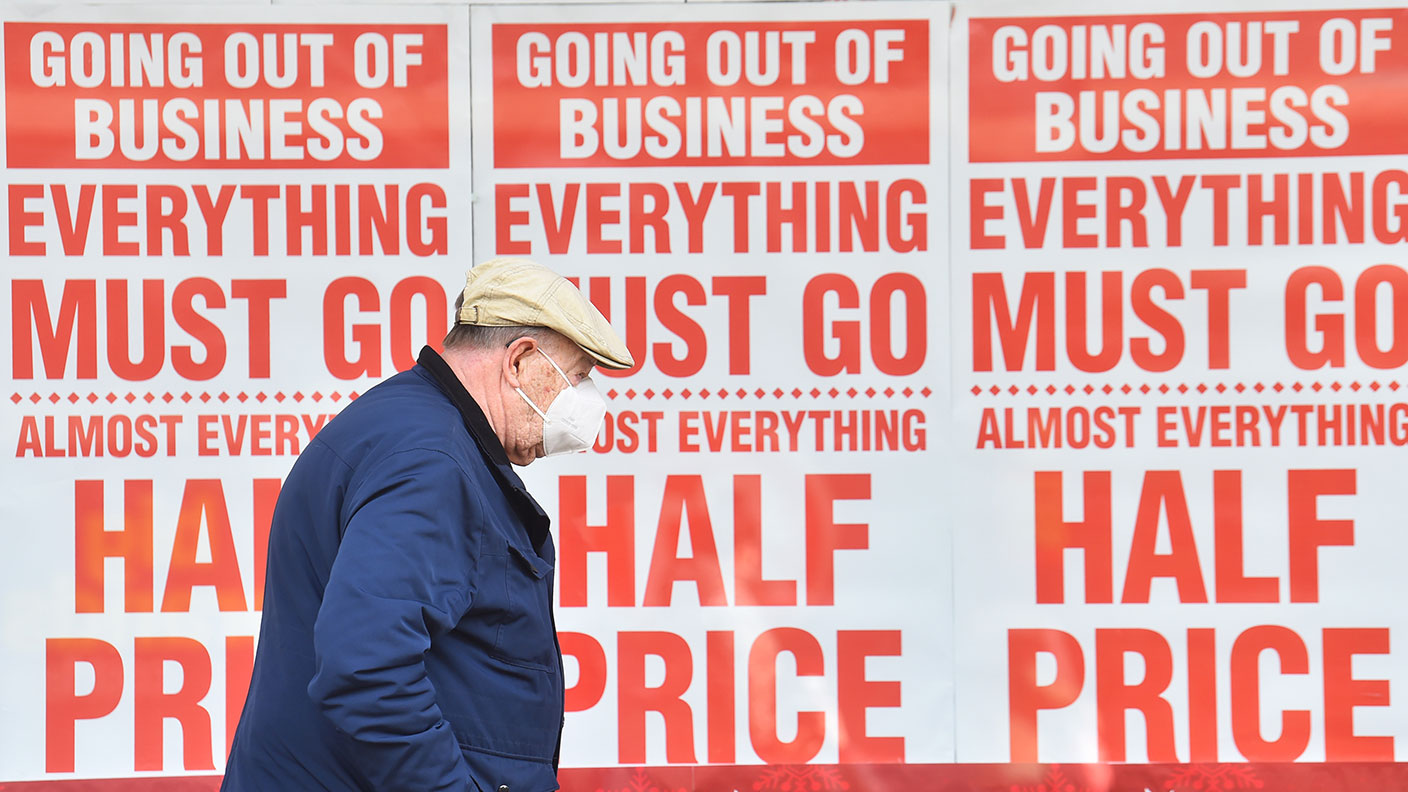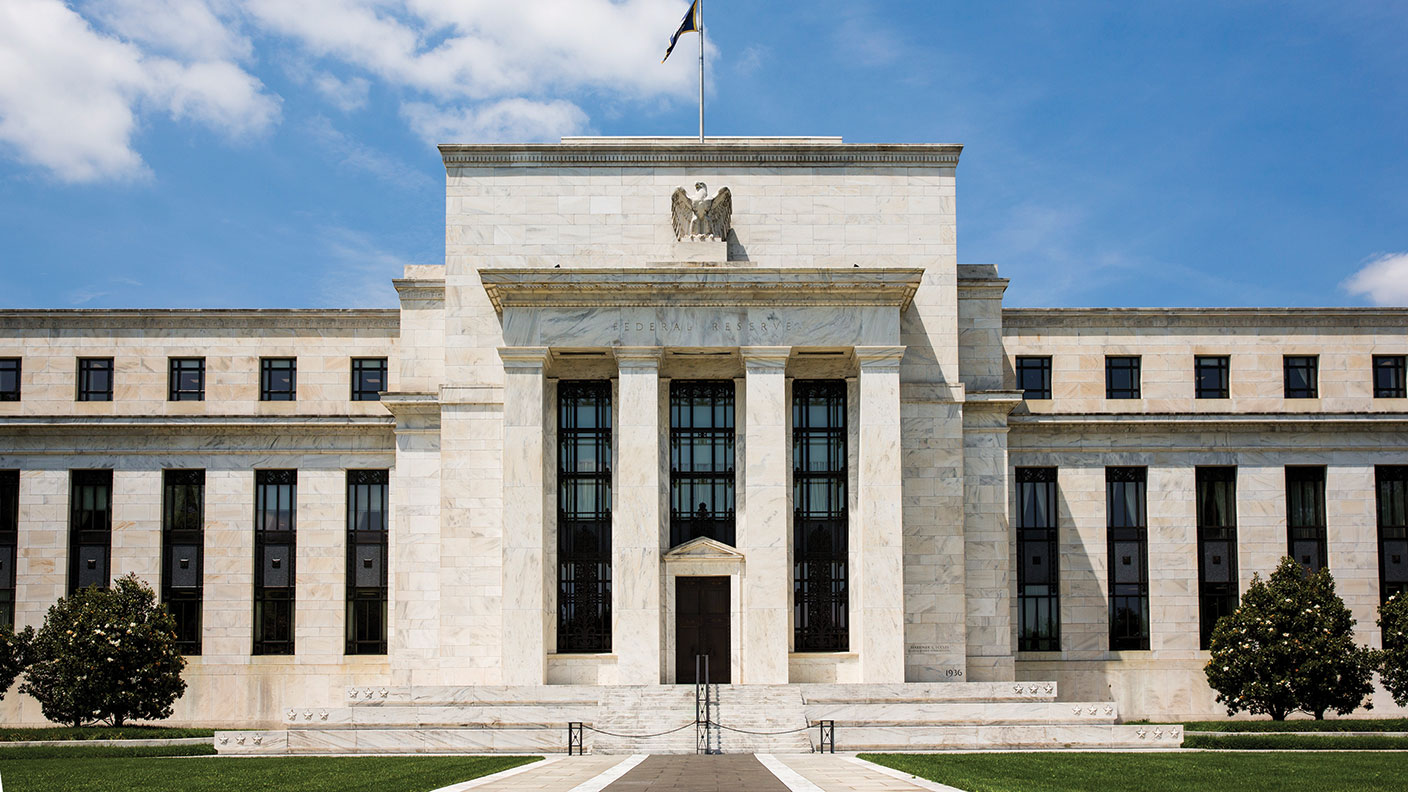Are recession fears justified? Maybe it’s time to look on the bright side
There's a lot to feel nervous about right now, and many people are worrying about an impending recession. But it's by no means certain, says John Stepek. There are still plenty of reasons to be cheerful.


Get the latest financial news, insights and expert analysis from our award-winning MoneyWeek team, to help you understand what really matters when it comes to your finances.
You are now subscribed
Your newsletter sign-up was successful
Want to add more newsletters?

Twice daily
MoneyWeek
Get the latest financial news, insights and expert analysis from our award-winning MoneyWeek team, to help you understand what really matters when it comes to your finances.

Four times a week
Look After My Bills
Sign up to our free money-saving newsletter, filled with the latest news and expert advice to help you find the best tips and deals for managing your bills. Start saving today!
A suddenly hawkish central bank; soaring household bills; a hefty correction in the stock market – and that’s before we even mention geopolitics.
It’s no wonder everyone’s feeling a bit nervy.
So maybe today, it’s time to take a moment to look on the bright side.
MoneyWeek
Subscribe to MoneyWeek today and get your first six magazine issues absolutely FREE

Sign up to Money Morning
Don't miss the latest investment and personal finances news, market analysis, plus money-saving tips with our free twice-daily newsletter
Don't miss the latest investment and personal finances news, market analysis, plus money-saving tips with our free twice-daily newsletter
Everyone’s talking about the yield curve again
There are suddenly lots of reasons to be fearful out there: living costs are rocketing, geopolitical tensions are doing the same, and now the Federal Reserve, America’s central bank, has turned all hawkish on us.
It’s little wonder that some are fretting that the Fed will end up driving us into a recession, rather than simply cooling things off a bit as we head into a recovery.
In particular, we’re suddenly hearing a lot of talk about inverted yield curves again. This is the phenomenon where short-term interest rates end up being higher than long-term ones.
This is the closest thing to a cast-iron recession indicator that we’ve got; it has predicted every recession with no real false positives since World War II. It’s not a tight market-timing indicator as such – the inversion has occurred anything up to two years ahead of time – but it’s very reliable.
It even inverted ahead of the pandemic-driven recession – and yes, your guess is as good as mine as to how the bond market knew the plague was coming, but I’ve learned not to knock a good indicator while it’s still working (this is a joke, to be clear: the odds of a slowdown were probably pretty high I suspect, given China’s crackdown on growth, so I think there’s a good chance the curve would’ve been right this time too, even if Covid hadn’t hit).
Anyway, the yield curve is not yet inverted, but it’s now back in the financial commentary and being watched like a hawk.
Yet despite my often-bearish demeanour, I’m not convinced a recession is something we need to worry about right now.
A recession is by no means a sure thing
The thing is, underlying economic growth is strong: US GDP growth in the final quarter of 2021 came in at an annual rate of 6.9%. Meanwhile, we’ve just heard this morning that the French economy expanded at its fastest rate in 52 years in the same quarter.
So there’s a lot of momentum there. Omicron hasn’t had anywhere near the impact that the worst-case scenarios had implied. And if we’re lucky, it might even be the last major variant that causes any sort of disruption. It’s clear that most countries would rather start thinking about how to live with this rather than stay semi-locked down for good (though watch out for power grabs by governments as “emergency” powers become permanent).
And on top of all that, employment remains high and household balance sheets healthy. Consumers might be worried about heating bills, but they’re still buying iPhones if Apple’s latest results are anything to go by.
What does all this imply? We’re at a transition point, it’s true. Central banks are (for now) actively worried about inflation and they are willing to at least move away from emergency monetary policy settings in an attempt to tackle that.
That has some in the market already worrying that we’ll get a recession any minute. And of course, as noted above, we’ve got soaring energy prices and a genuine cost-of-living squeeze ahead of us.
But at the same time, if you believe the household saving data and the employment data, there’s a certain amount of slack in the system to cover that. That’s not to say it won’t hurt, but it won’t necessarily be a recovery killer either.
As for rising interest rates, unless you think they’ll spike a lot higher – and the jury is very much out on that – then the main effect is going to be on the “financial” economy rather than the “real” one.
Ephemeral companies and “story stocks” and imaginary assets that have been built and boosted on a mixture of distorted discount rates, hype about digital assets, and pure magical thinking, are already bearing the brunt of even the tiny move in interest rates that we’ve seen so far.
But for companies with healthy balance sheets and strong cashflows, the sorts of rate rises we’ve seen so far should be negligible.
This isn’t just about “stuff” versus “tech”, though that’s a big part of it. It’s about genuine businesses and genuine earnings and genuine cashflows being valued again over castles in the sky.
In all, this is probably a good thing. We’ve been living in our heads for too long and it’d probably be a good idea to go out and engage with the world again.
But to translate that into less mushy investment terms, it means that despite its recent run higher, “value” probably has a long way to run versus “growth” (after all, growth has had a much better innings than anyone expected).
Invest accordingly.
Get the latest financial news, insights and expert analysis from our award-winning MoneyWeek team, to help you understand what really matters when it comes to your finances.

-
 Should you buy an active ETF?
Should you buy an active ETF?ETFs are often mischaracterised as passive products, but they can be a convenient way to add active management to your portfolio
-
 Power up your pension before 5 April – easy ways to save before the tax year end
Power up your pension before 5 April – easy ways to save before the tax year endWith the end of the tax year looming, pension savers currently have a window to review and maximise what’s going into their retirement funds – we look at how
-
 How a dovish Federal Reserve could affect you
How a dovish Federal Reserve could affect youTrump’s pick for the US Federal Reserve is not so much of a yes-man as his rival, but interest rates will still come down quickly, says Cris Sholto Heaton
-
 New Federal Reserve chair Kevin Warsh has his work cut out
New Federal Reserve chair Kevin Warsh has his work cut outOpinion Kevin Warsh must make it clear that he, not Trump, is in charge at the Fed. If he doesn't, the US dollar and Treasury bills sell-off will start all over again
-
 'Investors should brace for Trump’s great inflation'
'Investors should brace for Trump’s great inflation'Opinion Donald Trump's actions against Federal Reserve chair Jerome Powell will likely stoke rising prices. Investors should prepare for the worst, says Matthew Lynn
-
 'Governments are launching an assault on the independence of central banks'
'Governments are launching an assault on the independence of central banks'Opinion Say goodbye to the era of central bank orthodoxy and hello to the new era of central bank dependency, says Jeremy McKeown
-
 Do we need central banks, or is it time to privatise money?
Do we need central banks, or is it time to privatise money?Analysis Free banking is one alternative to central banks, but would switching to a radical new system be worth the risk?
-
 Will turmoil in the Middle East trigger inflation?
Will turmoil in the Middle East trigger inflation?The risk of an escalating Middle East crisis continues to rise. Markets appear to be dismissing the prospect. Here's how investors can protect themselves.
-
 Federal Reserve cuts US interest rates for the first time in more than four years
Federal Reserve cuts US interest rates for the first time in more than four yearsPolicymakers at the US central bank also suggested rates would be cut further before the year is out
-
 The Bank of England can’t afford to hike interest rates again
The Bank of England can’t afford to hike interest rates againWith inflation falling, the cost of borrowing rising and the economy heading into an election year, the Bank of England can’t afford to increase interest rates again.